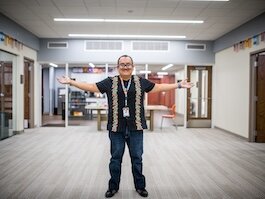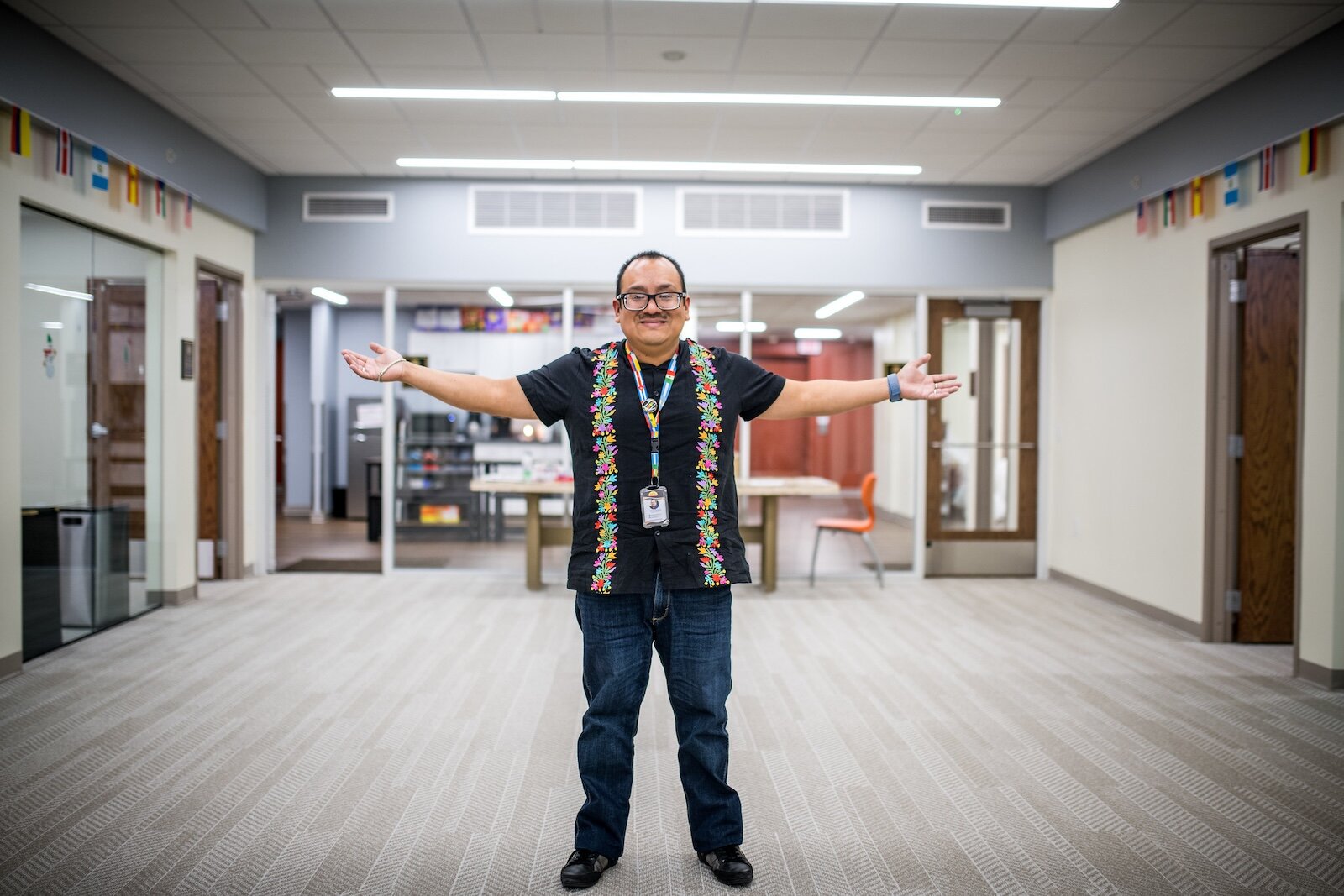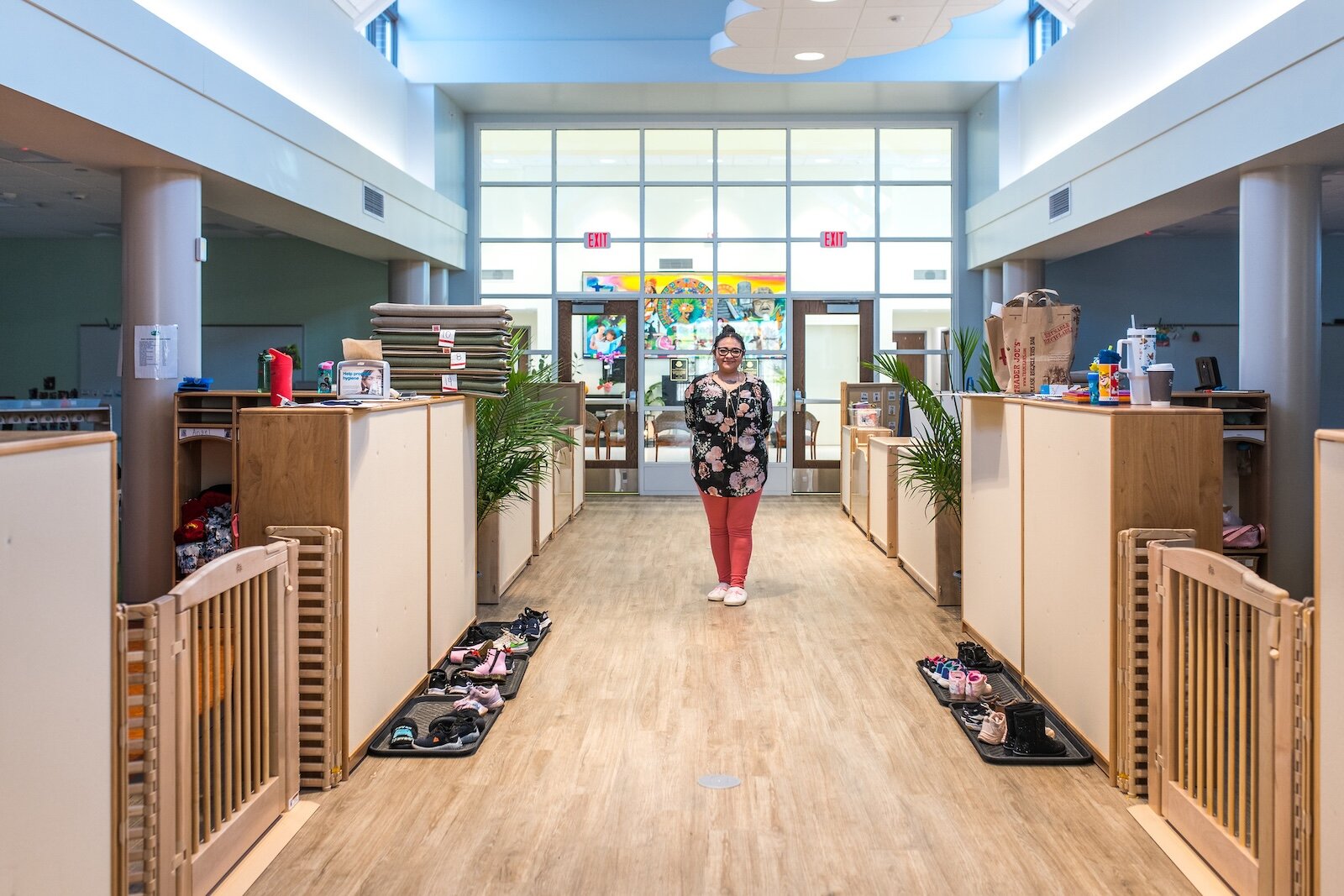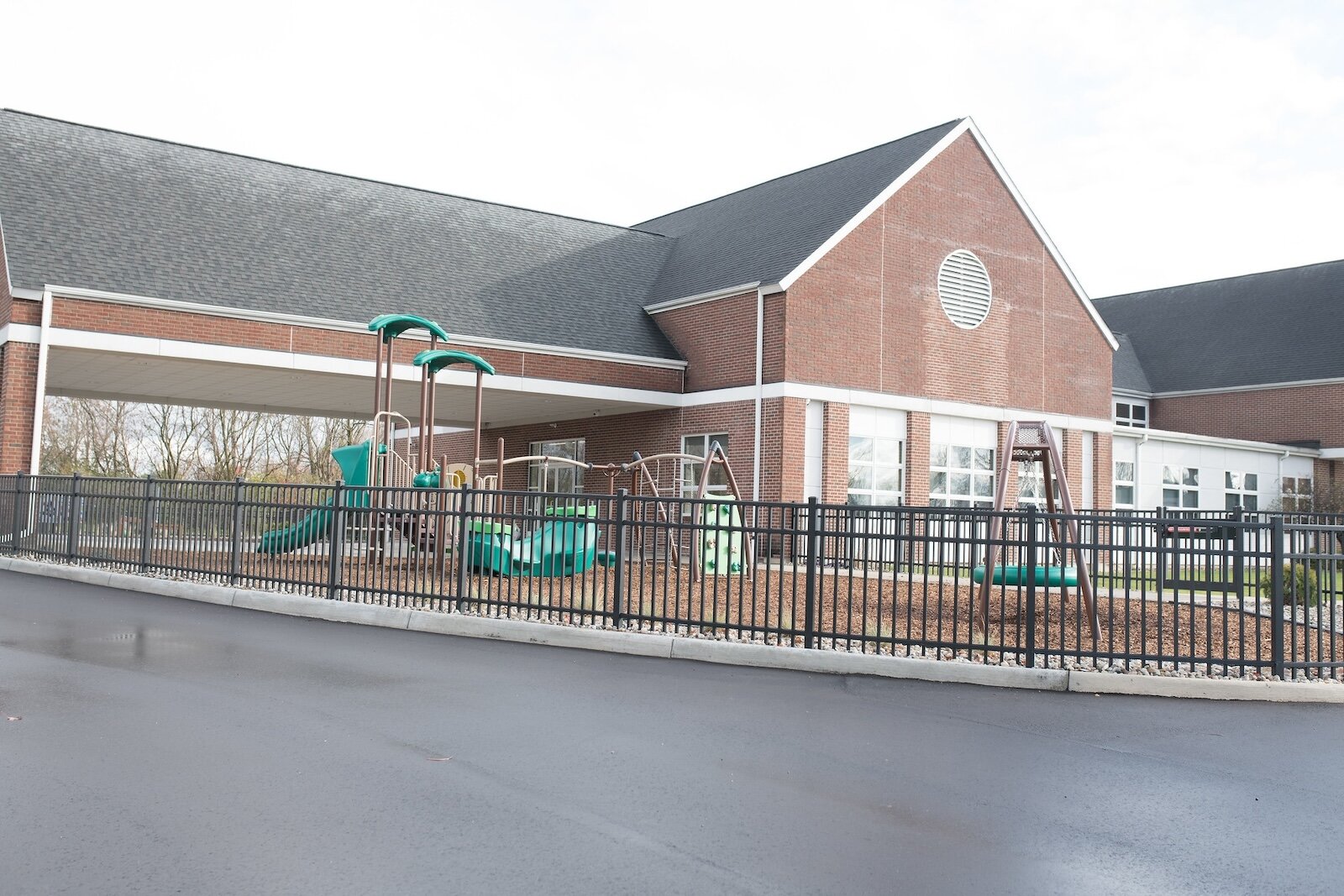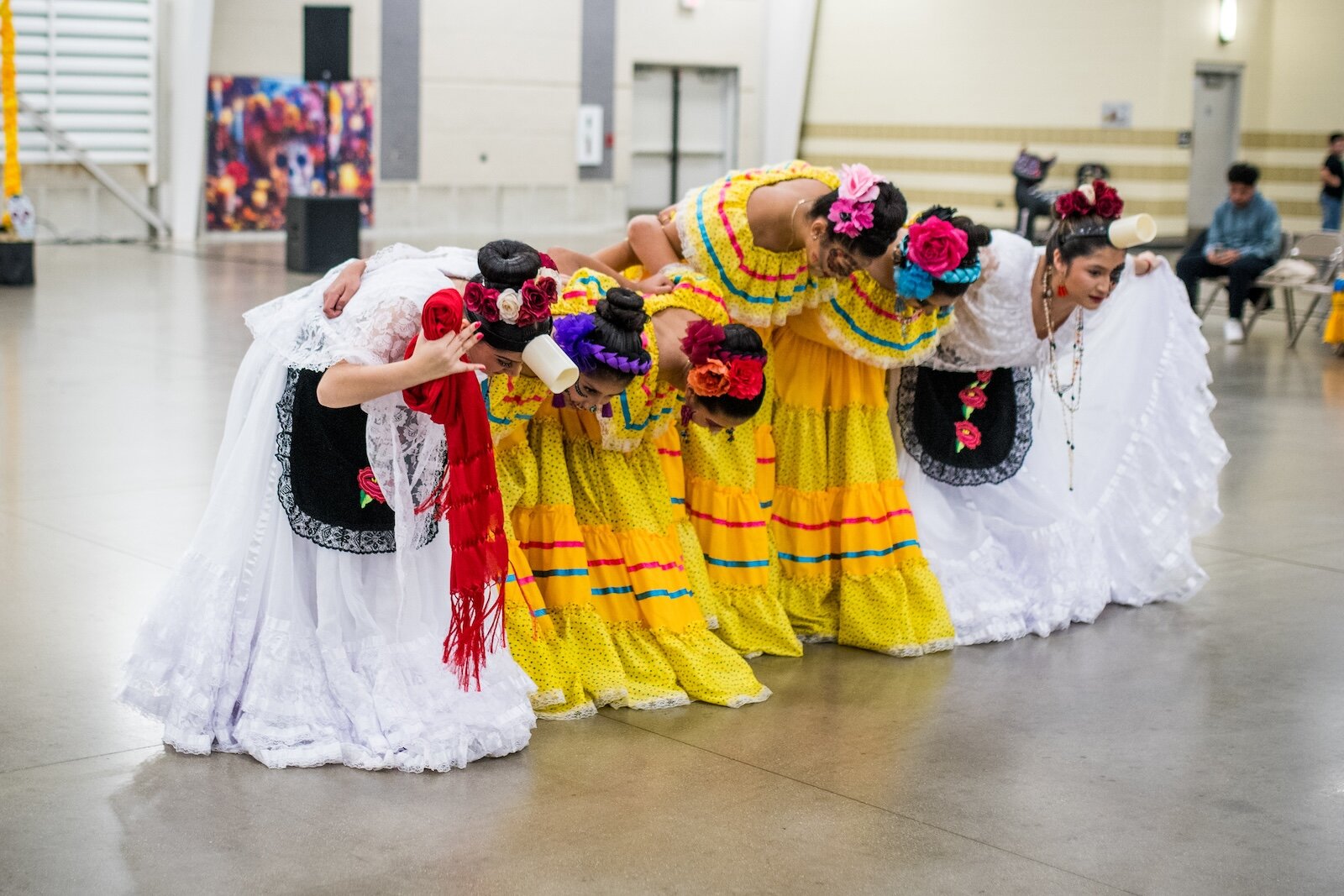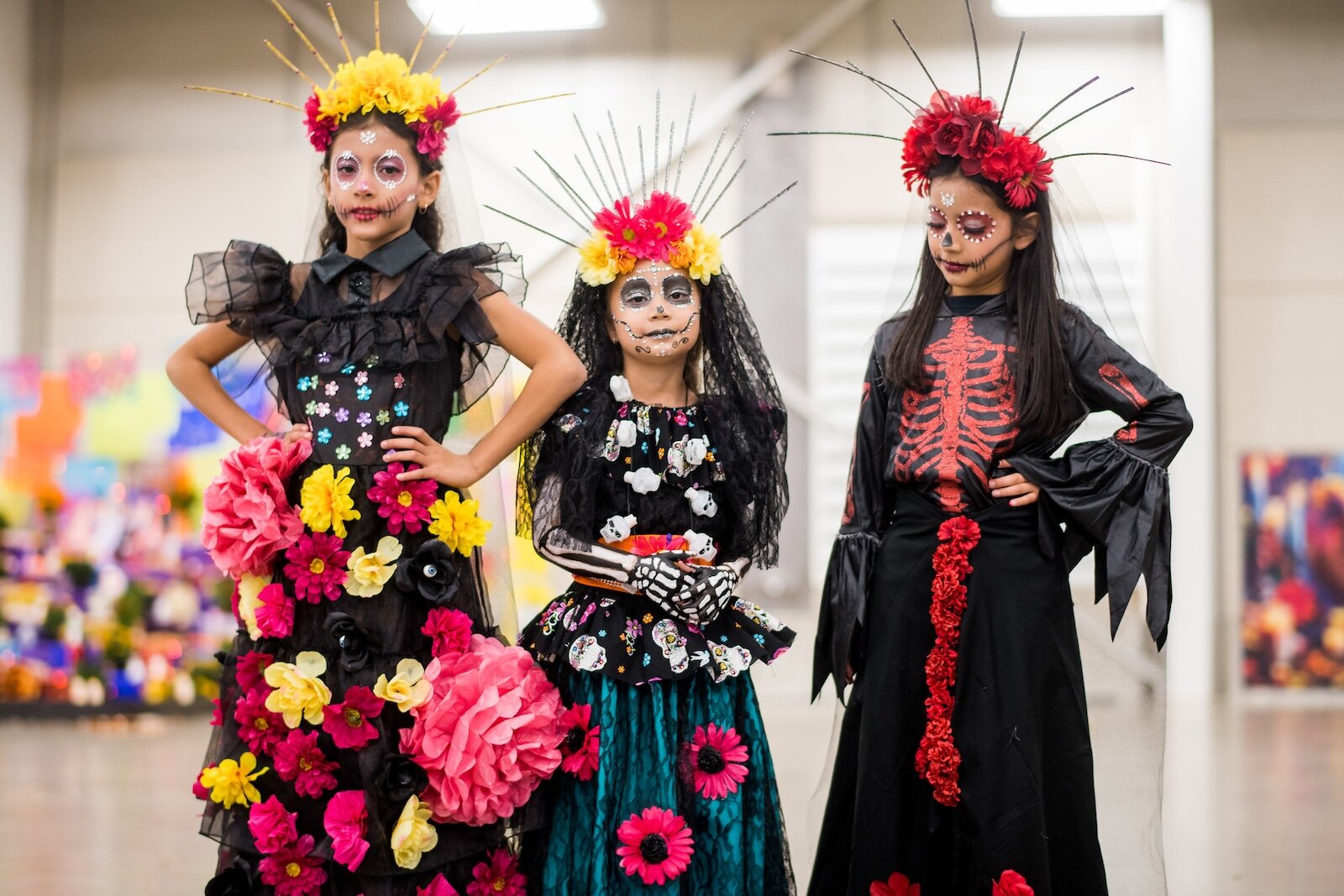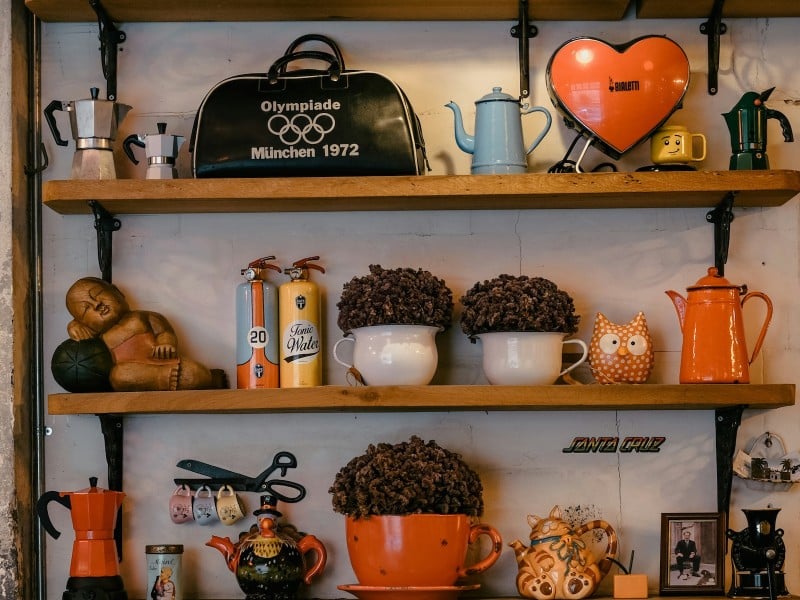Editor’s note: This story is part of Southwest Michigan’s Second Wave’s On the Ground Kalamazoo series.
KALAMAZOO, MI — When we arrived at El Concilio’s new building, the door was locked. We buzzed the receptionist to enter. The new El Concilio building on Millcork is open to all, Executive Director Adrian Vazquez-Alatorre says. But this is a perilous time for the community they serve.
“El Concilio focuses on the Latinx community, so everybody that identifies Latino, Latina, Latine, all are welcome,” he says.
Along the walls of a studio in their new building in the Milwood neighborhood, El Concilio has the flags of all the countries of the Americas, the 32 flags of North, Central, and South America. He points to one — “U.S., too.”
The nonprofit also helps people from outside of this hemisphere, Vazquez says. “In the last few years, we have been able to reach out to other immigrant communities that are not Latino…. El Concilio has been able to overcome challenges for people who are newcomers, don’t know the language, or are trying to find ways to connect to the community that is not like theirs. So, we have seen a lot of refugees from Africa, India, you name it.”
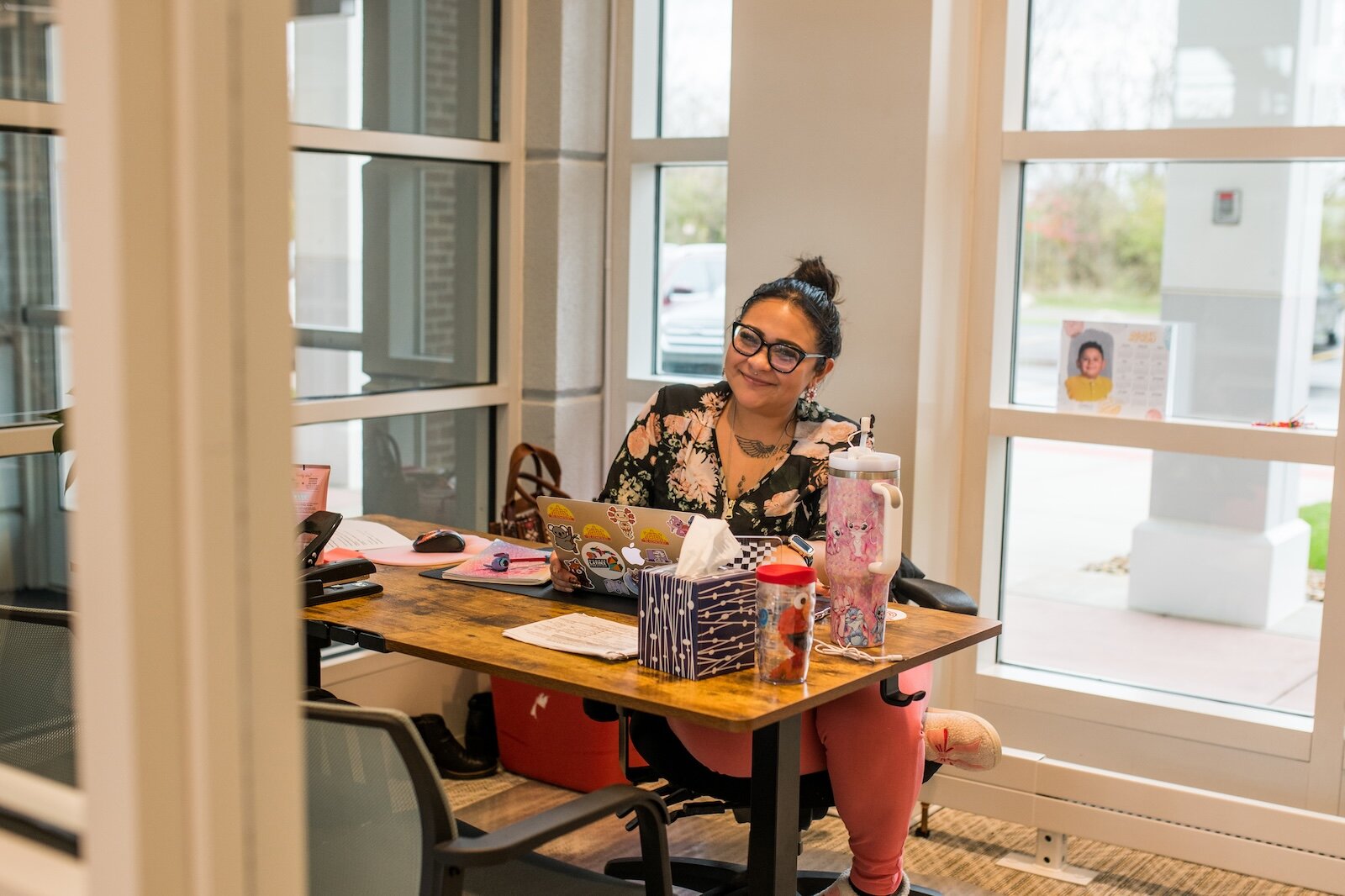
Liliana Obregon, Preschool Family Administrator, works in the program that has grown from 18 to 40 in the new building.
They have preschool and afterschool programs. With the new building, they went from being able to care for 18 preschool children to 40. Vazquez says it’s open to any family meeting income requirements and looking to give their children some experience in a bilingual and multicultural environment.
On our tour of the new building, we quietly looked in the windows of a classroom — it was naptime, full of sleeping toddlers.
El Concilio is hoping to increase security further, because, “Well, we have a preschool now. And right now we’re trying to add as many security protection systems as we can to ensure we can keep them safe,” Vazquez-Alatorre says.
They’ll be installing “a second door, also locked. In case there is somebody breaking in the first one, they’ll have a hard time breaking the second one,” Vazquez-Alatorre says.
Vazquez-Alatorre wants the community to know what El Concilio has to offer, but he’s wary of media publicity. “I think the more you put it out there, you put a face, you put a place, you know, that’s a target. You see now people marching in downtowns, you know….”
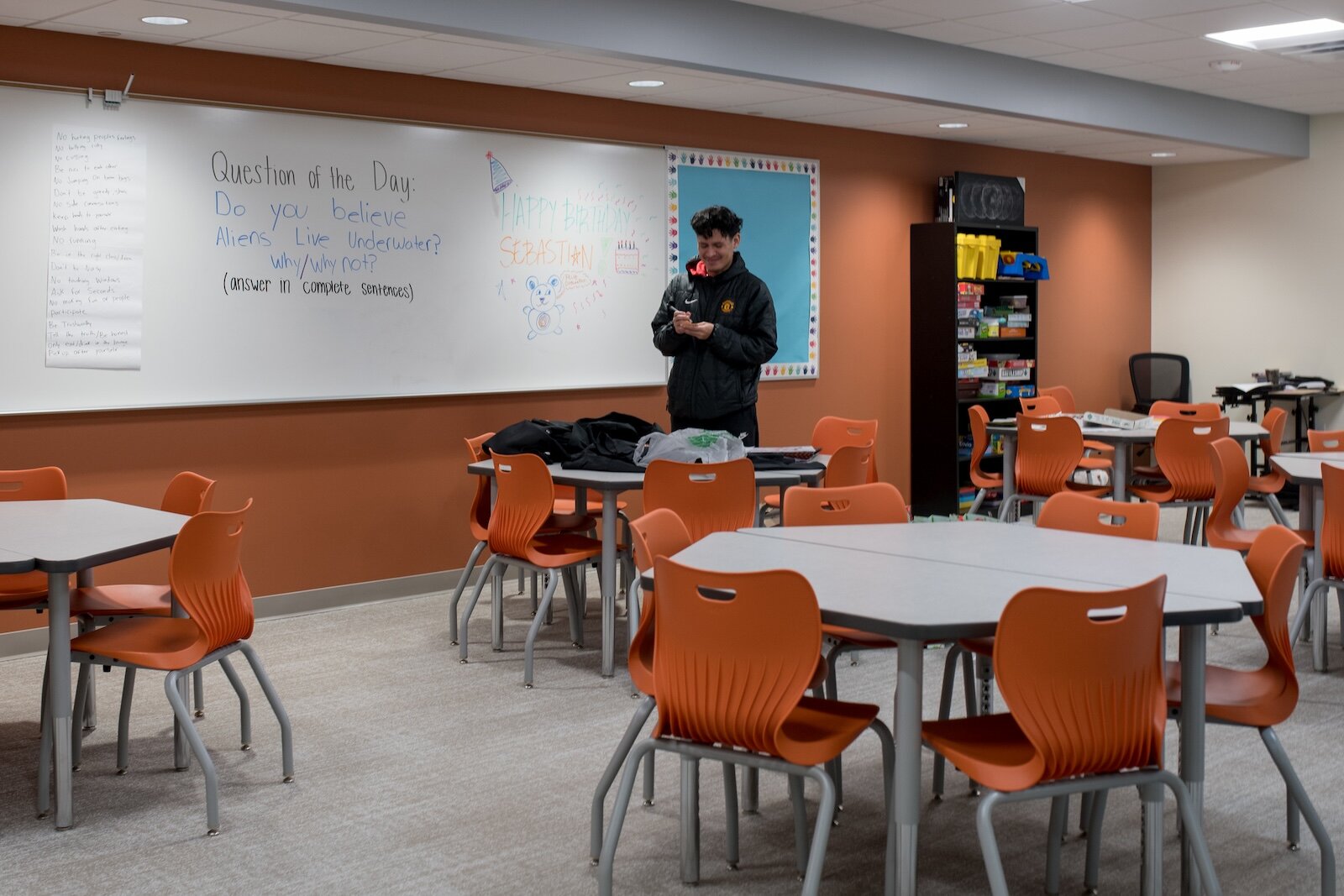
Classrooms are being prepared for after-school programs.
After bringing up the neo-Nazis who marched in Columbus, Ohio, in mid-November Vazquez-Alatorre doesn’t finish the sentence. What we know is there is increased national hostility toward immigrants fueled by bigoted rhetoric.
Vazquez-Alatorre has heard accounts of people in El Concilio’s community facing hostility. There’s also been a wave of concern that either immigrants will be deported or they’ll have to go back to their home countries before situations get worse for them.
Vazquez-Alatorre became the director at El Concilio in 2019 during the first Trump administration, so he knows what to expect. But it also could be very different this time around.
Neighbors
El Concilio has been serving the Kalamazoo Latino and Hispanic community since 1981. After over 40 years of sharing spaces at St. Joseph Catholic church, El Concilio now has its own building.
What used to be a Kalsee Credit Union building is “all ours, 28,000 square footage of space. We have classrooms, conference rooms, a dance studio, offices,” Vazquez-Alatorre says. It also has a full kitchen.
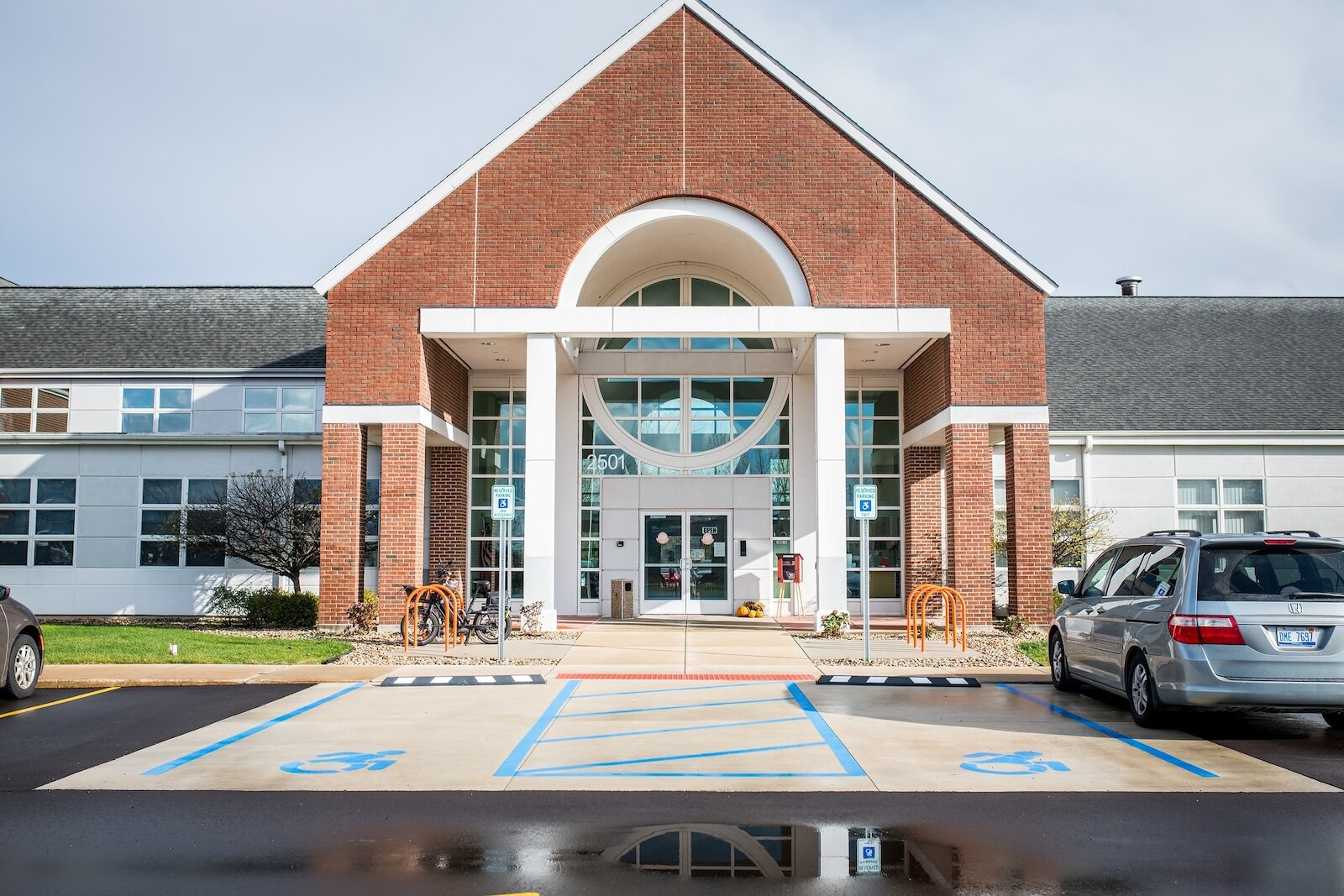
The new home of El Concilio offers everything from a new dance studio to classroom space, a full kitchen, improved office, and more.
El Concilio staff used to have to share office space. Now, “there’s more privacy for community members that come in with their cases.”
Outside, they have a playground for children and space for a planned soccer field.
Since the election, there’s been a great demand for help in the new building.
The 2020 U.S. Census found that 7.4% of the City of Kalamazoo’s population identified as Hispanic or Latino. County-wide the number is 6.1%. City residents who identified as foreign-born are 7.5%. The U.S. Census doesn’t ask people if they are documented.
The Edison neighborhood, near El Concilio’s new building, is rich with Latino culture. The writer of this article has lived in Edison for 20 years. We’ve had neighbors celebrating quinceañeras, playing Mexican cumbias from their homes and cars, and operating some great taco trucks. One neighbor had a half-Mexico, half-U.S. flag flying -— but we haven’t seen that up this year.
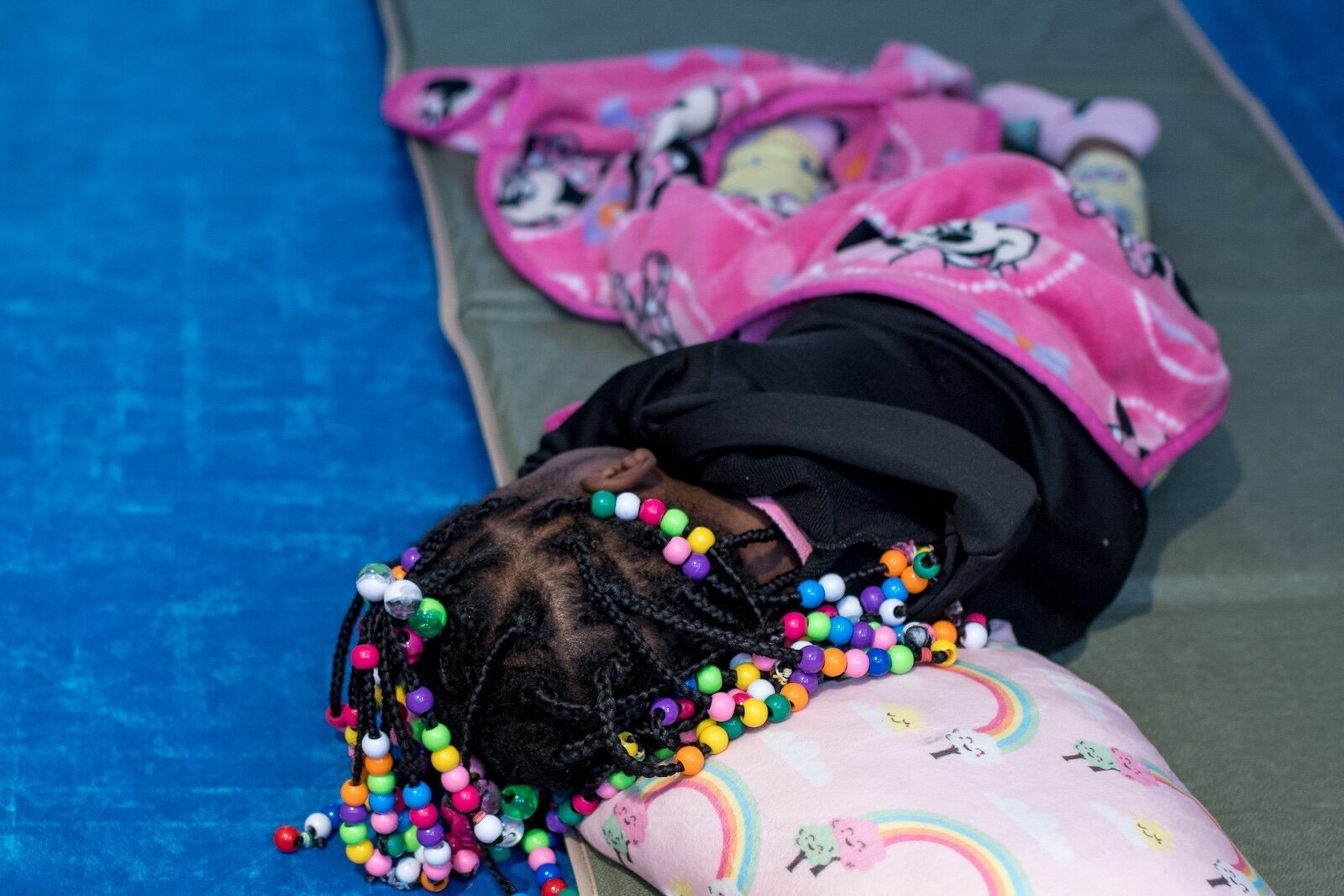
It’s naptime for preschoolers at the new El Concilio location.
What would our neighborhood look like if Trump’s promised “mass deportation” went through? He has said he’ll declare a national emergency when he gets in office and has threatened to use the U.S. military to round up neighbors who are, essentially, defenseless civilians.
Vazquez-Alatorre remembers what El Concilio faced during the first Trump administration.
“The demands of service, of support, it got really high at that time… Thanks to many (Kalamazoo) foundations — we reached out, they said, ‘Yes, we will support you. We’ll do what we can,'” he says.
“We were all connected, talking all the time, ‘Hey, this is going on, we just got called, immigration might be at the store, immigration might be here, call the police,’… People were scared and going crazy,” he says.
With increased funding, “We were able to hire more staff to meet the needs and the demands of our community, connecting to lawyers, getting translation documentation, assisting when people are moving back to their country.”
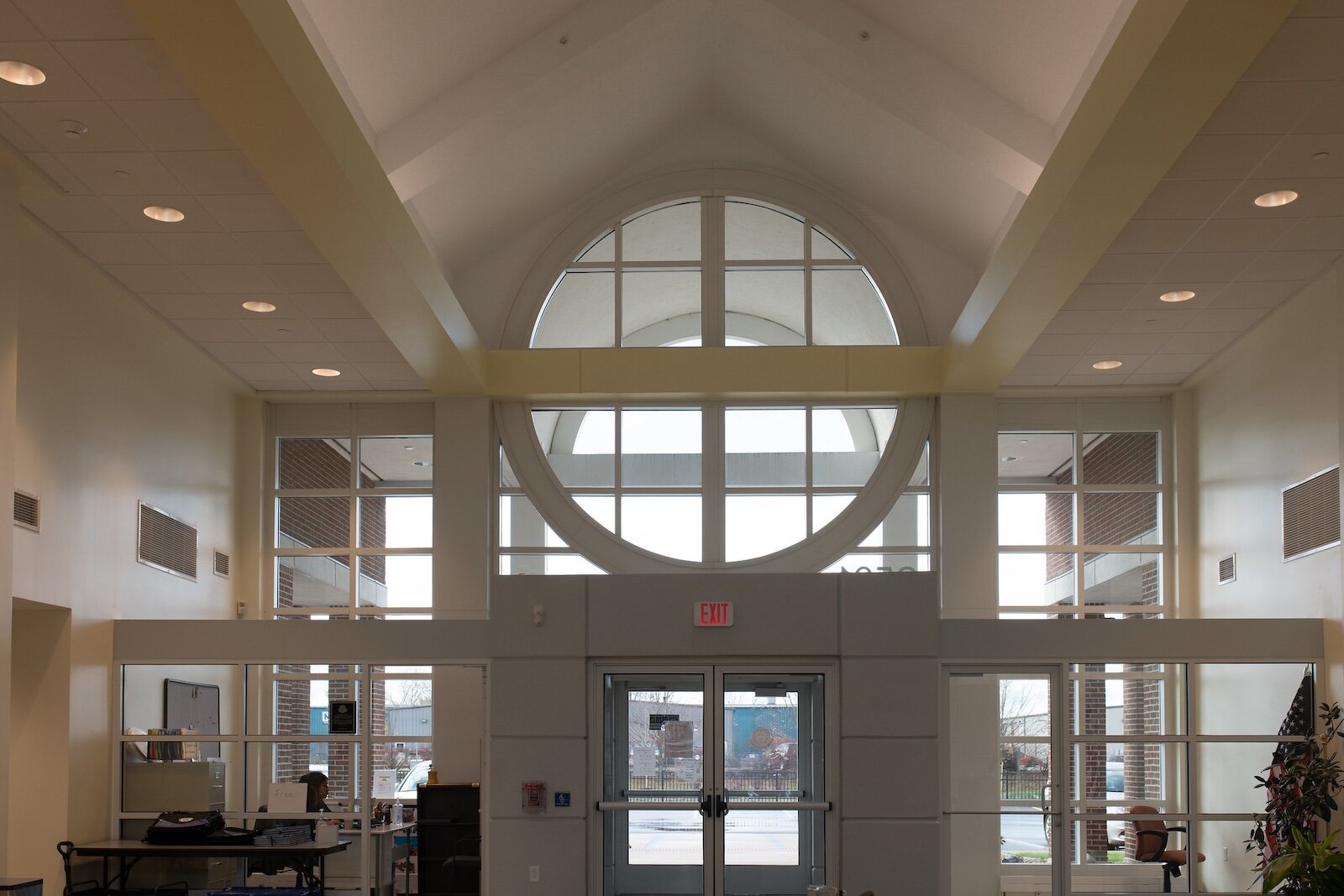
The new home of El Concilio offers everything from a new dance studio to classroom space, a full kitchen, improved office, and more.
The crisis atmosphere passed in 2021. It was a time to “move forward,” he says. El Concilio was able to start a capital campaign to raise funds for the new building, which opened in October, just in time for a new crisis.
‘It can’t happen again, you know.’
Since Nov. 5, Vazquez-Alatorre has been “thinking that this was going to happen again,” of the president-elect’s focus on immigrants and the atmosphere of crisis it generates that Vazquez experienced during Trump’s first administration.
He adds, “It can’t happen again, you know.”
But he thinks El Concilio, and the country, should be prepared for the worst. There’s been more than “build a wall” from Trump in this campaign.
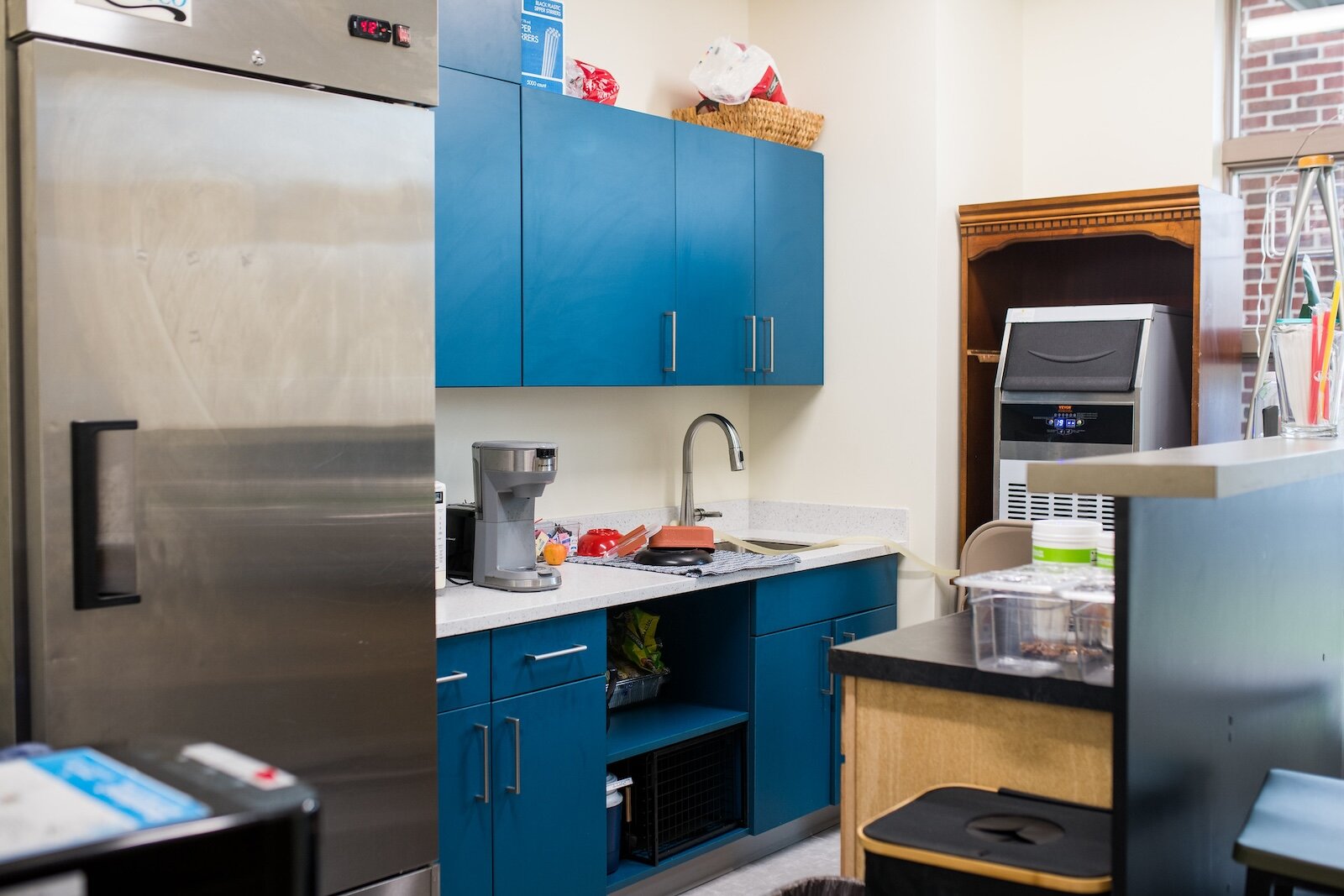
El Concilio has a full kitchen in their new building.
For Vazquez-Alatorre, it feels like over half the voters are opposed to the people of his community, he says. “I’m not saying everybody who voted for him is racist, but they have some kind of prejudice, some kind of belief in all his things that he said about immigrants.”
Vazquez-Alatorre says the campaign exploited people’s fears with messages of division. The Hispanic community was used as a wedge dividing the BIPOC communities. “‘We need to get all these people out, they’re all criminals, they’re all taking our jobs.’” has been Tump’s take on Vazquez’s community, he says.
Vazquez-Alatorre can’t predict what’ll happen. “It’s hard to see how much he’s going to do with his new administration.”
He thinks Trump won’t be able to achieve his promised goal of deporting all undocumented people. Still, “he has the capacity to detain a million or two and deport them.
“But again, if one million undocumented get arrested, detained, and put in camps or whatever, deported, you’re impacting families, right?”
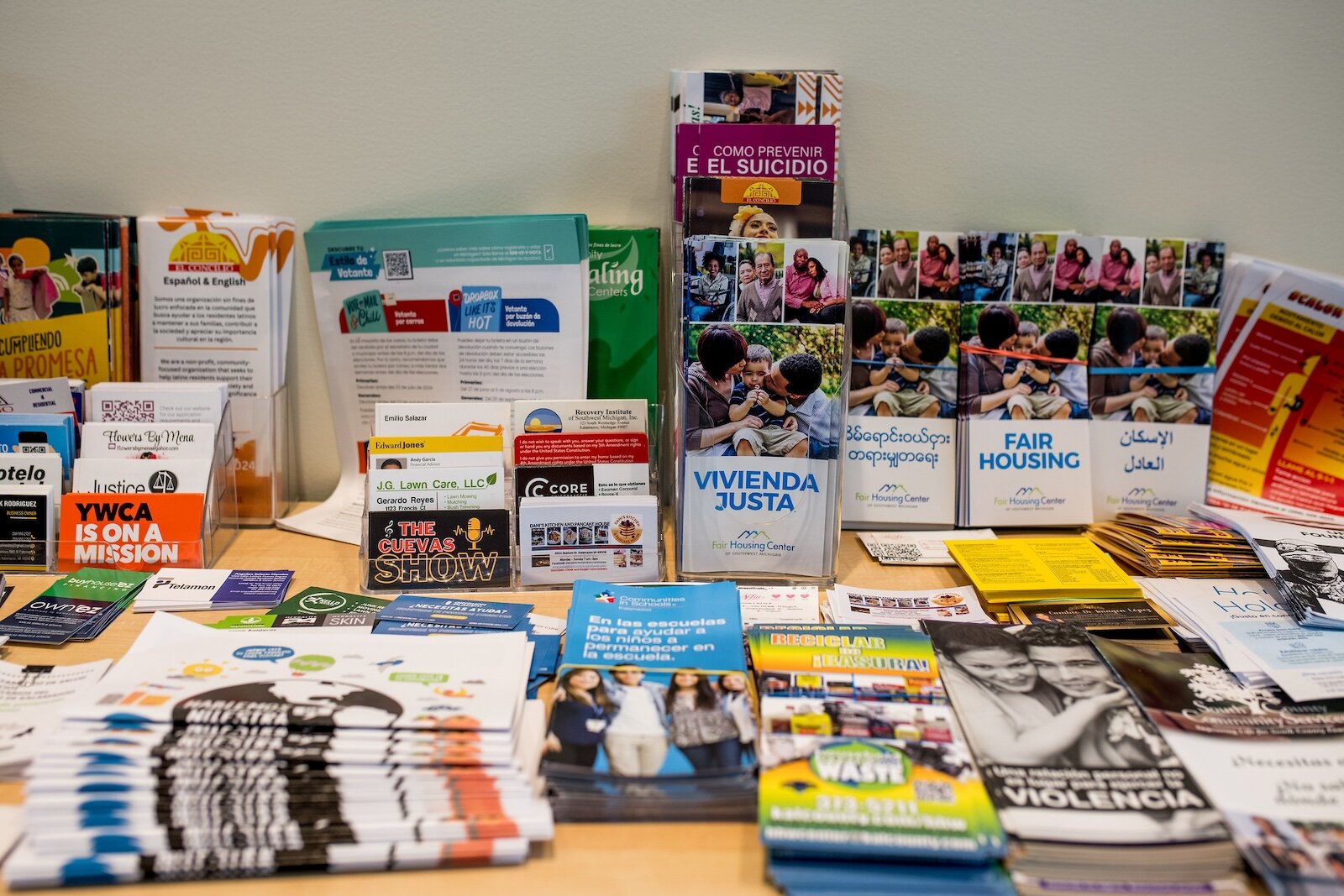
El Concilio has a wealth of resources for those seeking information.
In the first Trump administration, El Concilio worked to keep families together. A big need they saw was for passports. “We saw a lot of families move out of the country.”
It’s happening again. “Right now, we’re seeing that we’re getting calls, appointments to get a passport.”
El Concilio is working to help “get people’s documents ready. You know, from kids, home, financials, get all those things ready.
“And obviously, I know January is around the corner, but we’re all doing what we can to ensure we can prepare for what’s going to be happening the first year.”
“Stand up for them.”
El Concilio focuses on other aspects of their community. They help to connect people with healthcare and provide translation services, and cultural activities. They have a streaming online radio station broadcasting community info and music —- we’d like to stop to look in the studio on our tour. But the sense that the coming years are going to be years of crisis kept intruding.
The new building will have a STEM classroom, has rooms for adult English-as-a-second-language classes. Counselors help adults with employment issues, and job discrimination cases — that topic leads to what would happen to, for example, Kalamazoo’s bedding plants industry, if suddenly most of their employees disappear.
Local greenhouses, “could hire American citizens to do the jobs, but they didn’t do it,” Vazquez-Alatorre says. If the promised deportation of workers comes about, would local or national employers in agriculture, construction, meat-packing, or other industries survive the loss of millions of employees willing to do the work?
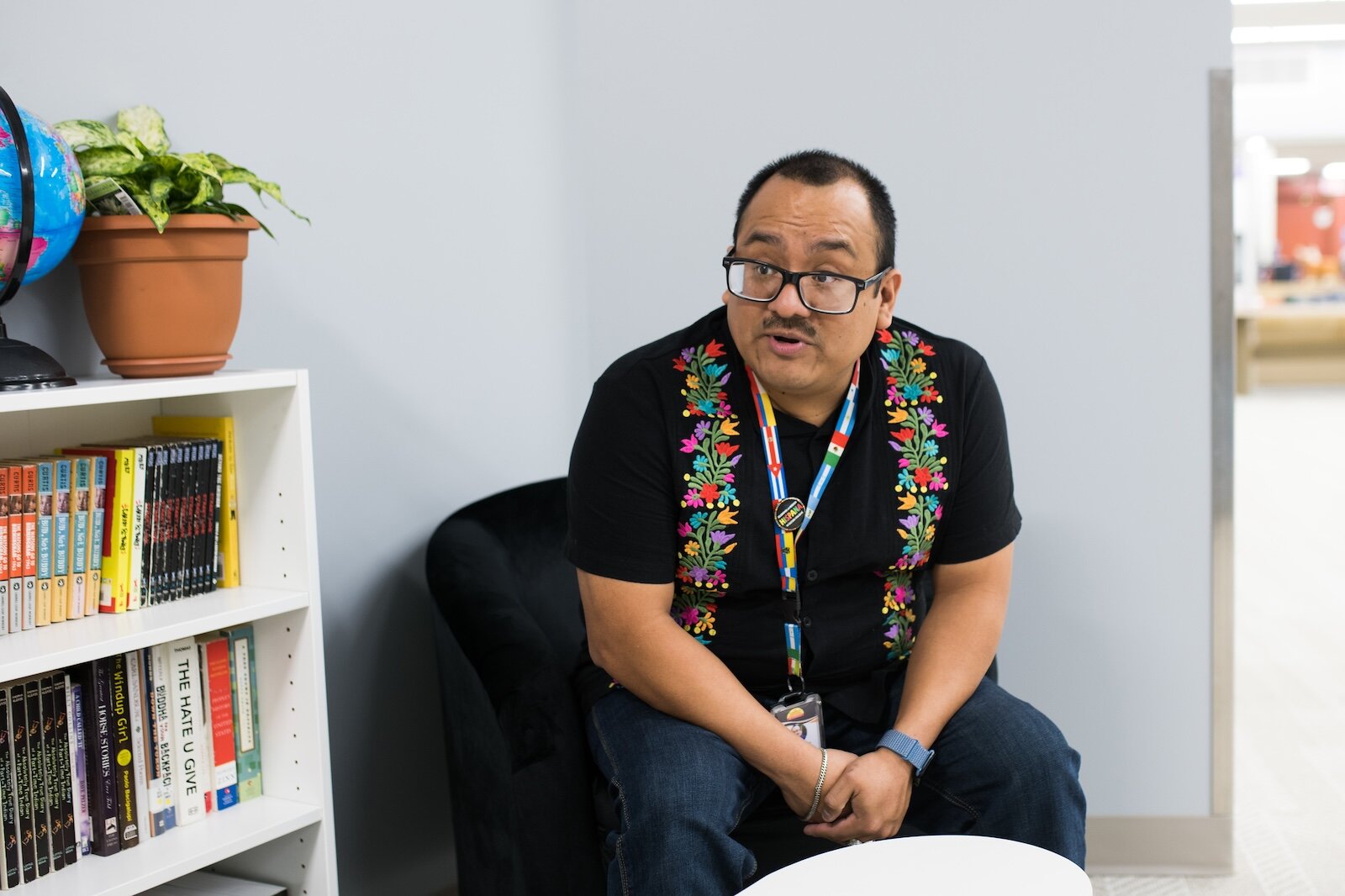
Vazquez-Alatorre asks citizens, when they see harassment of Latino or other immigrant groups, to “Stand up for them. Stand up and, you know, speak up. Or, say, ‘hey, you need help?'”
Then there’s the matter of the coming Trump years’ impact on children.
El Concilio has long had the goal to help children and older youth in school, connecting them with “bilingual, bicultural, social and emotional activities so that kids can, again, forget about any issues,” Vazquez-Alatorre says.
They have counselors to help with emotional issues. “And right now, the social, emotional is going to play a big role, because we’re trying to get kids not to worry about their parents, their situation — that it could be, you know, really bad,” he says.
“We saw a high number of kids with depression and anxiety back in the first (Trump) years. And we might see that again. Kids coming in crying, saying, ‘Hey, should I be packing because I’m going back with my parents to Guatemala?'”
Harassment in schools is “one of the things we’re right now talking about to KPS, talking to KDPS and everybody, to ensure that they’re ready to assist us with any complaints, any bullying in schools.”

Classroom space inside the new home of El Concilio.
He points out that neo-Nazis were marching in Columbus, Ohio, after the election, and Ku Klux Klan fliers calling for mass deportation were found in nearby northern Indiana.
The extremists’ message is, “’We’re coming for you’…. Yep,” he says with a bitter laugh. “This is what I’m afraid of, the violence.”
El Concilio got a complaint right after the election. In Kalamazoo, a Latina Uber driver was called to pick up a customer.
When the customer saw his driver, according to Vazquez-Alatorre, “he said, ‘Oh, you’re an immigrant. I’m not going to get in your car… Now that Trump got elected, you’re going to get deported. You and all your dirty family.'”
She told him to shut her door, which he did. But he then spat on her through her open window.
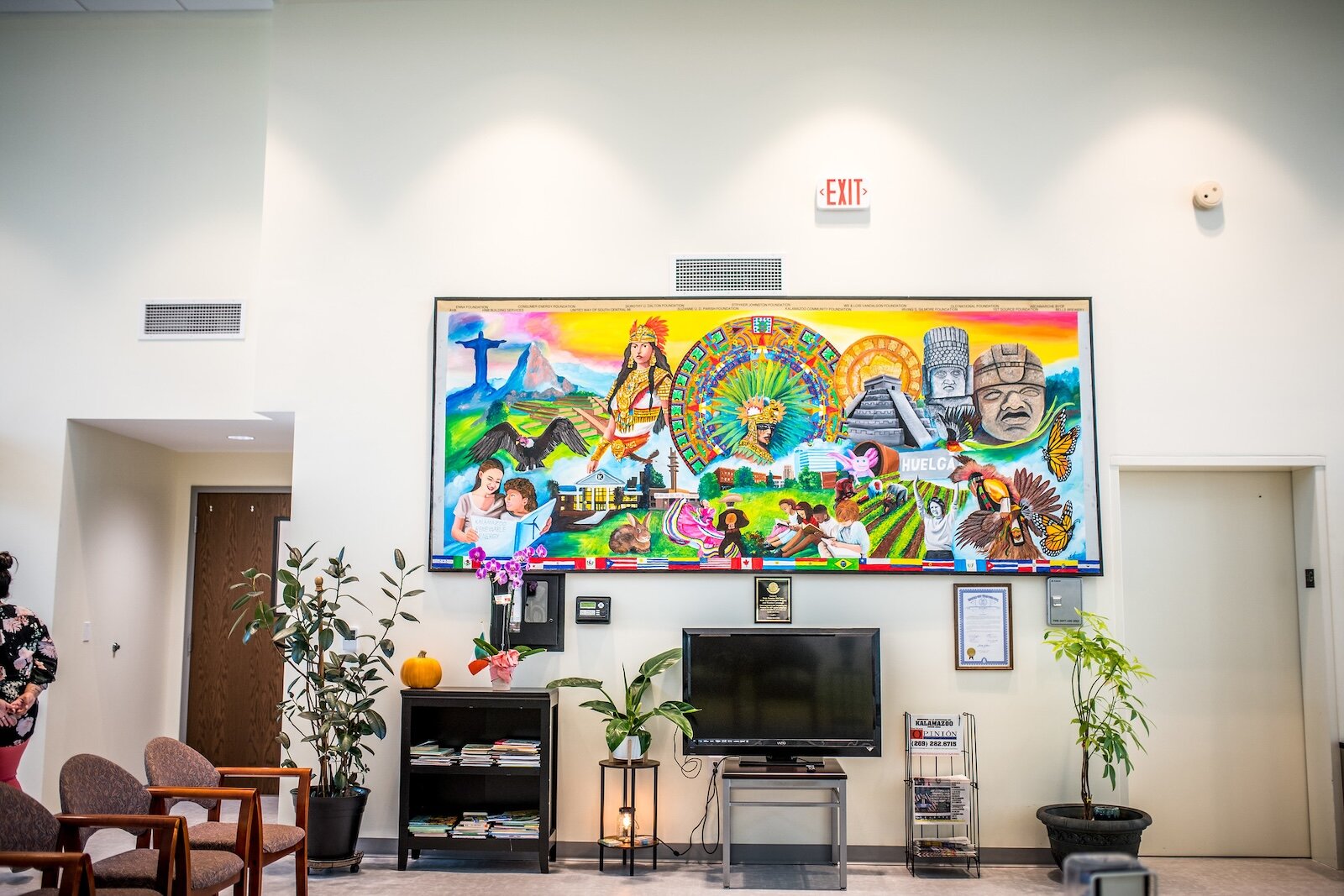
Inside the new home of the nonprofit El Concilio.
Vazquez-Alatorre asked her, why didn’t she call the police. “This is assault, you know.”
She told him she was scared. Instead, she went home and cried.
“We’re going to be afraid of how much we can do for ourselves,” he says.
If people outside of the Latino, Hispanic, or other immigrant communities see or hear examples of discrimination, from violence to harsh words, he says, “Stand up for them. Stand up and, you know, speak up. Or, say, ‘Hey, you need help?'”
He adds, “They don’t stand up for themselves because they’re scared. They don’t know how much they can try to do to defend themselves.”
Amid all this uncertainty there is a positive angle to El Concilio’s story. About the new El Concilio building, Vazquez-Alatorre says, “We’re super excited, happy to be here.”
However, they face “hard times,” Vazquez-Alatorre says.
“But again, we’ll survive. I mean, I guess we’ve done this in the past.”
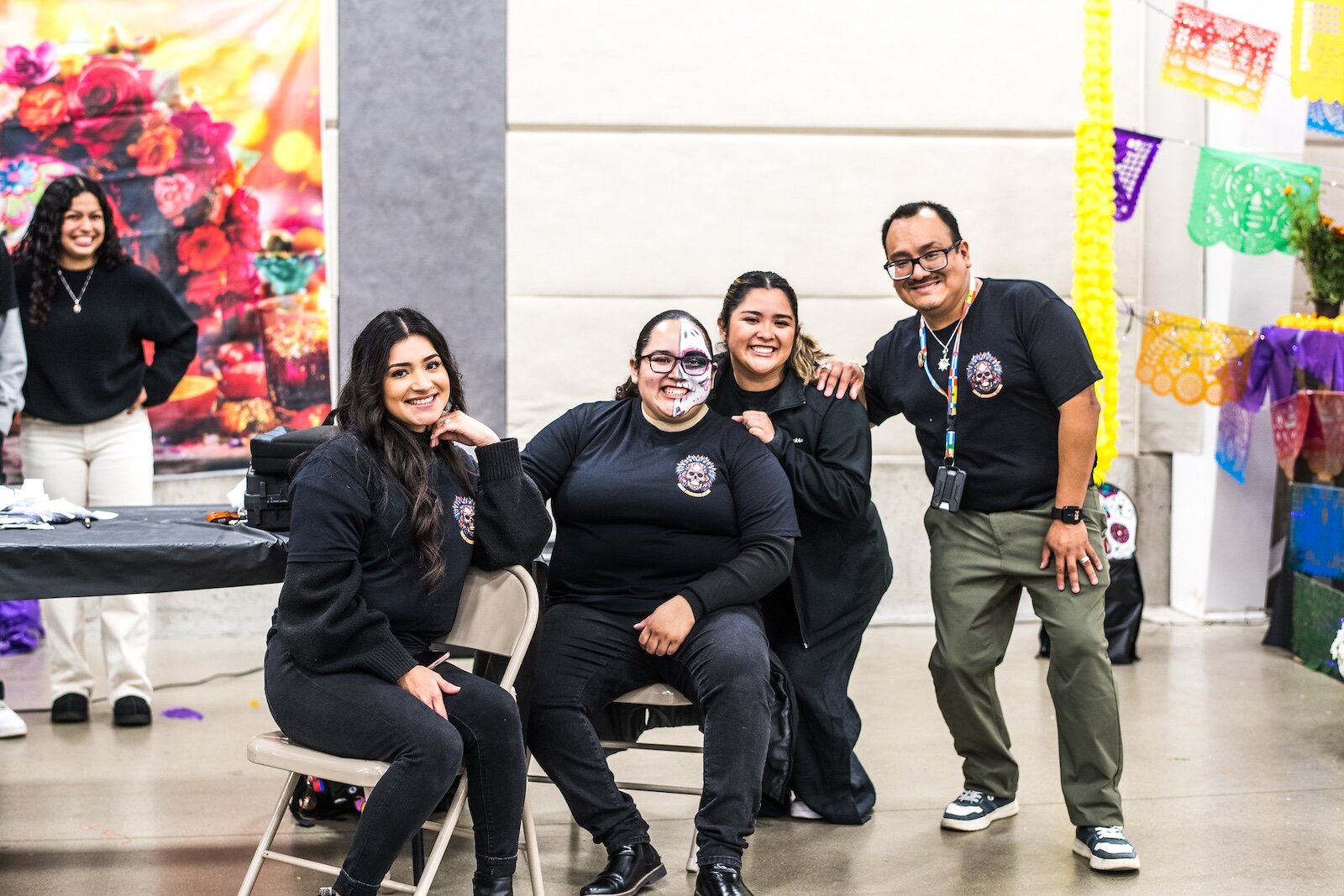
Eva Ramirez, Jessica Cortes, Sandra Cortes, Adrian Vazquez-Alatorre at the 10th DÃa de Los Muertos this year.
This story is part of Southwest Michigan Journalism Collaborative’s dedicated coverage of quality-of-life issues and equitable community development. SWMJC is a group of 12 regional organizations dedicated to strengthening local journalism. Visit swmichjournalism.com to learn more.

